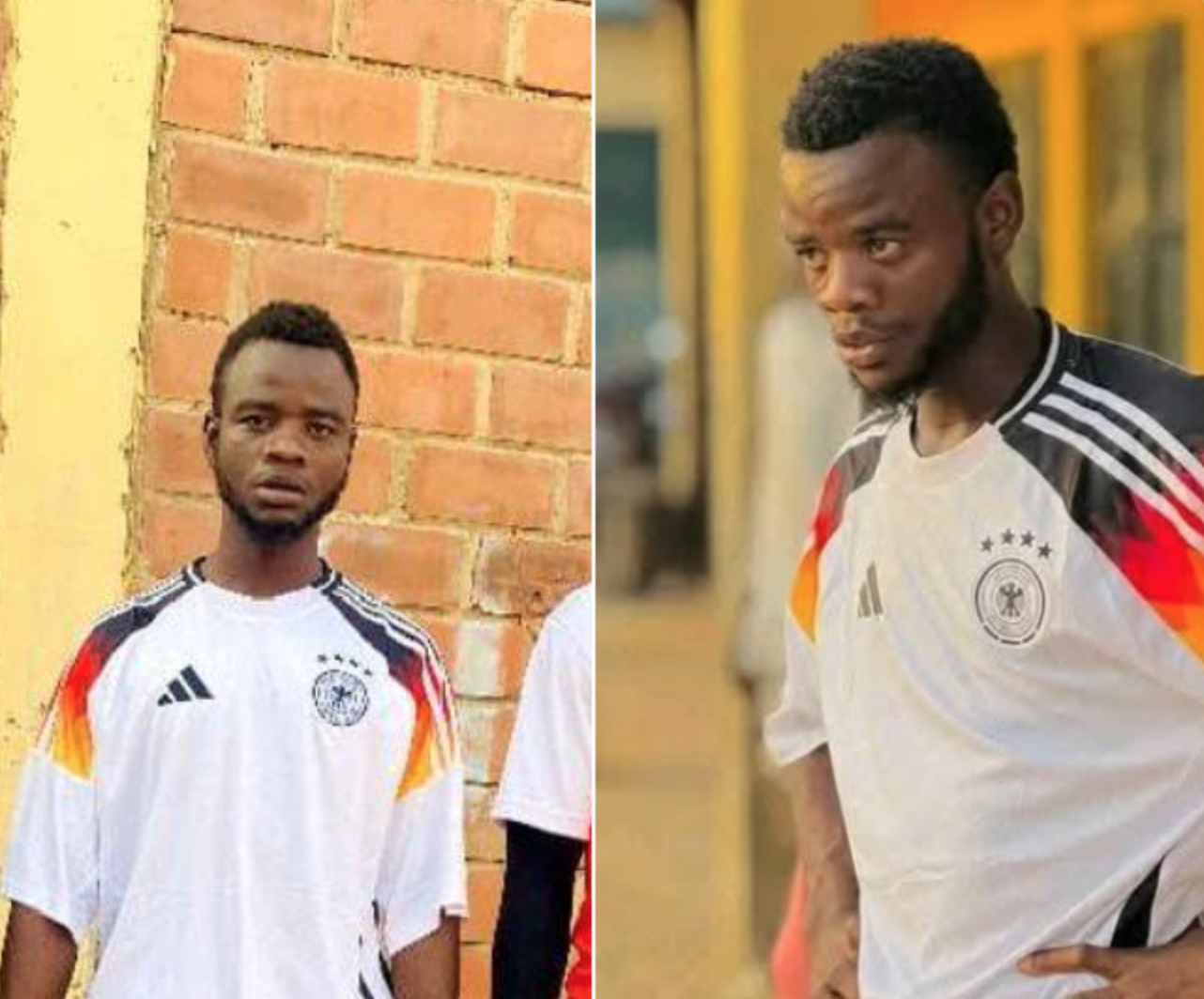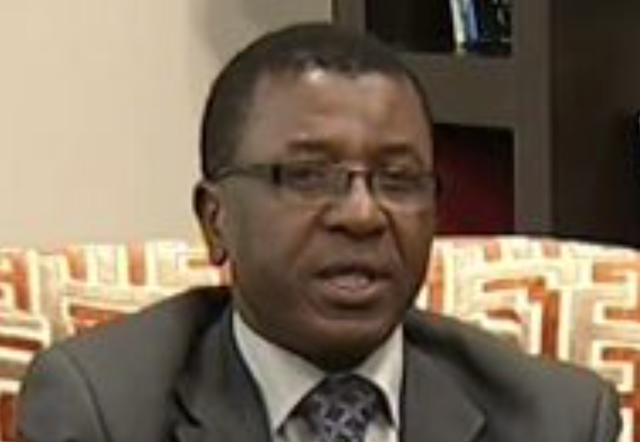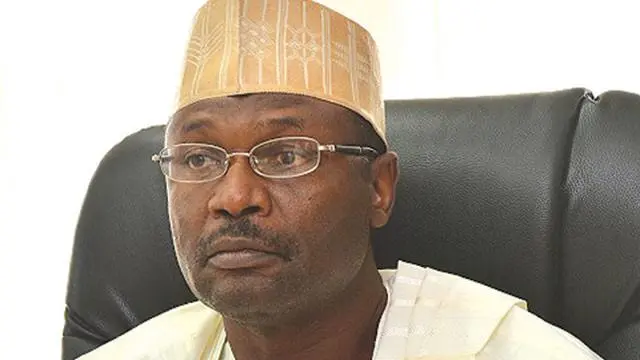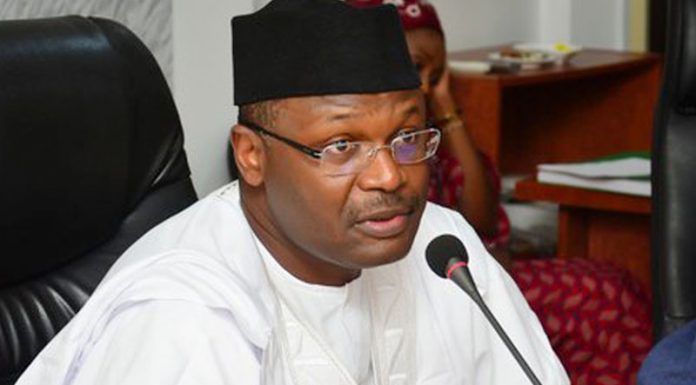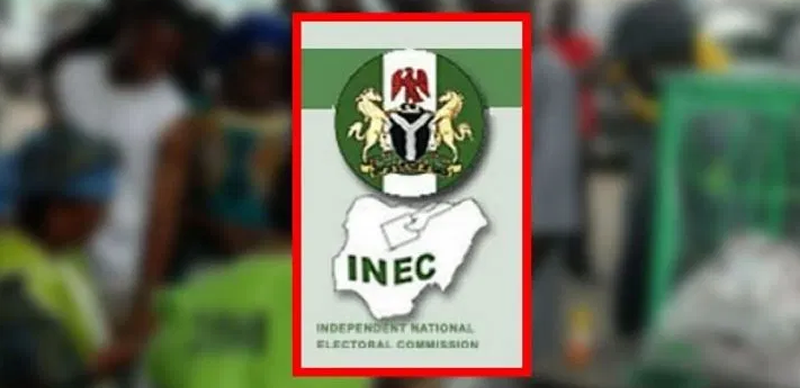Following the alleged stealing of the Edo State Governorship election by the All Progressives Congress (APC), tongues have once again started wagging and pens dripping about the meaning of human existence and the deteriorating state of kakistocracy in Nigeria. As long as Prof. Mahmood Yakubu remains the chairman of the Independent National Electoral Commission (INEC), thieves, imbeciles, and nincompoops will continue to seize power in Nigeria to misrule and destroy the country. The APC boasts of ruling Nigeria for an outrageous 32 years. This is no joke. They are serious about establishing a one-party totalitarian regime in Nigeria. Under this envisioned dictatorship, President Tinubu would evolve into an emperor, ruling his fiefdom.
If Prof. Yakubu is retained as INEC chairman or if someone else appointed solely by President Tinubu or his associates assumes the role, there is no doubt that Tinubu and the APC will be declared the “winners” of the 2027 Presidential election.
Therefore, Nigerians must act now. Tomorrow might be too late. Silence is the devil’s playground. The people must speak up immediately. Our lives, and the lives of our children, are at stake. We must pressure the Tinubu administration to overhaul INEC immediately, starting with the dismissal of the incompetent and compromised INEC chair, Prof. Yakubu, and replace him with a chairman nominated and chosen by the Nigerian people.
Currently, INEC is in a dire state. INEC reeks of corruption. Can you imagine that INEC is claiming the funds approved for the 2023 General Election were insufficient? The electoral body argues that out of the N355.2 billion approved and appropriated for the 2023 General Election, only N313.4 billion was released as of September 2023. Initially, the National Assembly approved and appropriated N303.1 billion for the election. However, due to rising inflation and fluctuations in the foreign exchange rate by January 2023, it became clear that the allocated funds would not be enough to conduct the election. As a result, the Commission was forced to request an additional N52 billion from the presidency, which was approved by the National Assembly, bringing the total funds for the election to N355.2 billion.
It is absurd that after conducting a highly controversial 2023 General Election marred by extensive gerrymandering and gross irregularities, INEC still has the audacity to complain that the funds were insufficient. The truth is that the 2023 General Election was adequately funded. In fact, INEC received a 62% increase in funding compared to the 2019 General Election. This increase was intended not only to enhance the electoral process but also to ensure greater credibility through the introduction of new technologies like the Bimodal Voter Accreditation System (BVAS) and the INEC Result Viewing (IREV) portal.
These technologies were expected to provide foolproof voter authentication and near-real-time result uploads, allowing the public to calculate votes before the official results were declared at the INEC collation center in Abuja. The BVAS is a device used for fingerprint and facial recognition to identify and accredit voters before voting, while the IREV is an online portal where polling unit results are uploaded, transmitted, and made available to the public.
Despite the increase in funding to enable INEC to improve the electoral process, the electoral body still failed to deliver on many of its promises. For example, three days before the 25th February Presidential election, INEC Chairman, Prof. Yakubu, insisted that there was no going back on the use of BVAS and IReV in the conduct of the election. Sadly, despite INEC’s repeated assurances that there would be no reversal on the use of BVAS and IReV, the commission failed to meet its promises and expectations. This is why most local and international observers and monitoring groups reported that the election was marred by widespread gerrymandering, falsification of votes at polling units, logistical problems caused by the late deployment of INEC officers to different polling units, falsification of the number of accredited voters, ballot box snatching, collation of false results, mutilation of results and computational errors, swapping of result sheets, forging of result sheets, snatching, and destruction of result sheets.
Despite having adequate time and funds for the preparation of the 2023 General Election, INEC failed to evenly distribute registered voters across the different polling units in the various geopolitical zones in the country.
Another clear indication of INEC’s failure in the 2023 General Election is that almost everything INEC was supposed to handle during the election has become the subject of long-lasting court litigations. For example, as the electoral body in charge of the 2023 Election, INEC, acting on the mandate of the people, ought to be enthroning State Governors and State and Federal legislators. However, the reality in Nigeria today is that State Governors and legislators are being installed by the law courts. So far, our courts have installed no fewer than eight State Governors. It is not the function of the judiciary to subvert the power of the electorate and put people in power as State Governors and legislators. However, because INEC has failed as a credible electoral body, the judiciary is now performing that function.
Though not perfect, the Electoral Act provides INEC with a framework for conducting a credible election. However, INEC remains ineffective.
Now, reflect on the stealing of the Edo State Governorship election by the APC last Saturday. Some are rationalizing the theft, reporting that the APC “won” the Edo State Governorship election. How can APC “win” a governorship election in Edo State when the pump price of fuel has soared above N1,000 per litre? Are the people of Edo State so ignorant as to vote for APC at a time when APC has made their lives miserable?. So, how can any reasonable person or group spread the lie that APC “won” the Edo State governorship election?
The unassailable conclusion from the foregoing is that INEC is overdue for fundamental reforms. The late President Umaru Musa Yar’Adua, on August 28, 2007, instituted a 22-member Electoral Review Committee, headed by Justice Uwais, to critically examine the electoral process in the country and advise on areas that require reform. Unfortunately, since the Justice Uwais Committee submitted its report in 2007, it has yet to be implemented.
It is disheartening that despite several calls for the implementation of the Uwais Report over the years, successive governments have failed to heed these calls. It is believed that if the Uwais Report is implemented, it will curtail most of the overbearing powers the executive arm, led by the President, wields over other arms of government in the conduct of elections in Nigeria.
According to the Uwais Committee, if Nigeria intends to conduct credible elections, it must establish a truly neutral and independent electoral commission with administrative and financial autonomy. The Committee believes that Nigeria needs an electoral process that enables elections to meet acceptable international standards, legal procedures that ensure election disputes are resolved before the inauguration of newly elected officials, and mechanisms to reduce post-election tensions. This includes the possibility of introducing the concept of proportional representation in the structure of government. To this end, the Committee stated that the INEC chairman and members of the electoral body cannot be appointed by the President because such appointments deprive the INEC of the autonomy and independence necessary to function as impartial arbiters in the electoral process.
The Committee attributed the lack of INEC’s independence to five major factors, including the partisanship and partiality of its chairman, members, and Resident Electoral Commissioners (RECs). According to the Committee, “The classification of the commission as a federal executive body in section 153 of the 1999 Constitution also brings it under the oversight of the executive branch of government. Similarly, its funding through the executive renders it vulnerable to manipulation and undue influence by that branch. Furthermore, the absence of effective democratic oversight of the commission, for example, by parliamentary committees, is another factor.” The Committee, therefore, recommended that “In terms of qualifications, the chairman, deputy chairman, and members of INEC should be persons of integrity, non-partisan, with vast professional, administrative, or academic experience, and be at least 50 years of age for the chairman and deputy chairman, and at least 40 years of age for the other members. Additionally, the chairman and deputy chairman should not be of the same gender.”
The Committee also recommended that the composition of INEC’s membership be reviewed periodically to ensure that the chairman, deputy chairman, and other members are non-partisan and have not been registered members of any political party in the preceding five years. It recommended that section 153 of the 1999 Constitution, which classifies INEC as a federal executive body, should be amended, and that INEC’s funding should come directly from the Consolidated Revenue Fund of the Federation rather than from the Presidency or National Assembly.
To ensure that Nigeria’s electoral process meets international standards, the Committee recommended that the federal government ratify the African Charter on Democracy, Elections, and Governance, which mandates member states to establish and strengthen independent and impartial national electoral bodies responsible for managing elections, and to create mechanisms that resolve election-related disputes in a timely manner, ensuring fair and equitable access for all contesting parties. The Uwais Committee also recommended that the 2002 OAU/AU Declaration on Principles Governing Democratic Elections in Africa be incorporated into Nigeria’s Code of Conduct for political parties.
Considering the merits of the Uwais Committee Report, the Tinubu government is respectfully urged to implement its recommendations. An electoral body solely appointed by the President or the Federal executive cannot possess the necessary independence and impartiality to conduct credible elections. Therefore, instead of President Tinubu appointing the next INEC chairman and members, including INEC Commissioners and Returning Officers, their appointments should be managed by a transparent, independent body chosen by the Nigerian people through a referendum or plebiscite. For the electoral process to be perceived as fair, the body responsible for conducting elections must be seen as independent and free from political interference. Appointment by the President or the Federal executive could undermine this perception. Many international organizations advocate for the appointment of electoral bodies through a transparent and inclusive process involving multiple stakeholders. This is seen as a way to ensure the credibility and legitimacy of the electoral process.
Finally, it beats the imagination that INEC is funded directly by the Federal government. Such a funding arrangement compromises INEC’s independence. “He who pays the piper dictates the tune.” If INEC relies heavily on federal funding, it cannot serve as an unbiased arbiter in the electoral process. Public perception is crucial in an electoral process. If INEC continues to be funded by the federal government, the perception of bias in favor of APC the ruling party will persist. This perception could erode public trust in INEC and the legitimacy of election outcomes.
